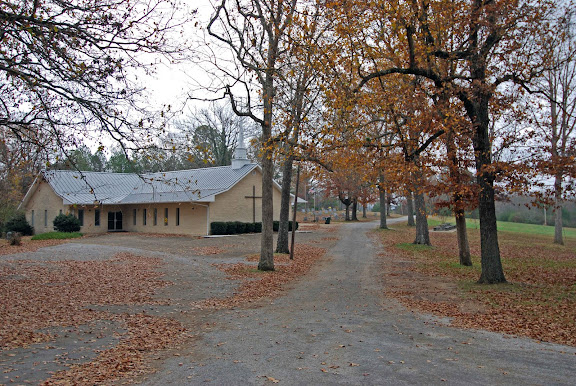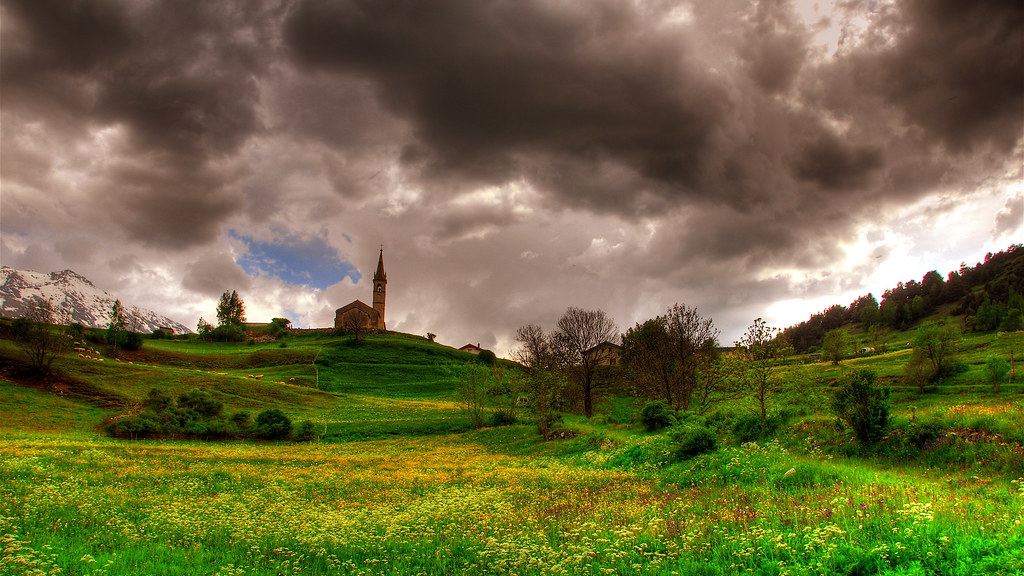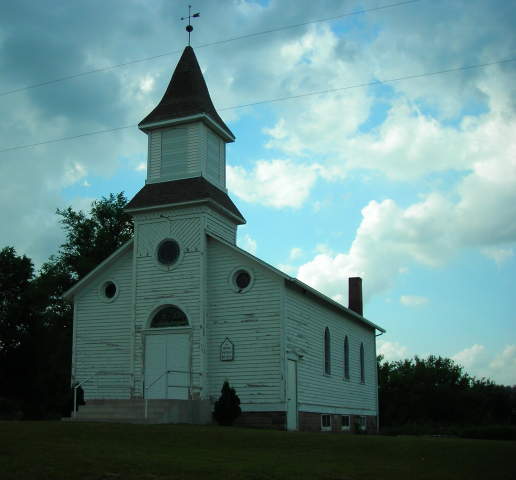The following chapter doesn’t relate immediately to pastoral work, but it is interesting to note the scope of Herbert’s view of the minister’s calling. While the details don’t exactly fit the modern context, I am challenged by the idea of seeing the mission of the Church integral to the well being of the social order and the health of the nation. It can be very easy to see the work of the Church only in terms of our local congregation.
THe Countrey Parson hath not onely taken a particular Survey of the faults of his own Parish, but a generall also of the diseases of the time, that so, when his occasions carry him abroad, or bring strangers to him, he may be the better armed to encounter them. The great and nationall sin of this Land he esteems to be Idlenesse; great in it selfe, and great in Consequence: For when men have nothing to do, then they fall to drink, to steal, to whore, to scoffe, to revile, to all sorts of gamings. Come, say they, we have nothing to do, lets go to the Tavern, or to the stews, or what not. Wherefore the Parson strongly opposeth this sin, whersoever he goes. And because Idleness is twofold, the one in having no calling, the other in walking carelesly in our calling, he first represents to every body the necessity of a vocation. The reason of this assertion is taken from the nature of man, wherein God hath placed two great Instruments, Reason in the soul, and a hand in the Body, as ingagements of working: So that even in Paradise man had a calling, and how much more out of Paradise, when the evills which he is now subject unto, may be prevented, or diverted by reasonable imployment. Besides, every gift or ability is a talent to be accounted for, and to be improved to our Masters Advantage. Yet is it also a debt to our Countrey to have a Calling, and it concernes the Common-wealth, that none should be idle, but all busied. Lastly, riches are the blessing of God, and the great Instrument of doing admirable good; therfore all are to procure them honestly, and seasonably, when they are not better imployed. Now this reason crosseth not our Saviours precept of selling what we have, because when we have sold all, and given it to the poor, we must not be idle, but labour to get more, that we may give more, according to St. Pauls rule, Ephes. 4. 28. I Thes. 4. 11, 12. So that our Saviours selling is so far from crossing Saint Pauls working, that it rather establisheth it, since they that have nothing, are fittest to work. Now because the onely opposer to this Doctrine is the Gallant, who is witty enough to abuse both others, and himself, and who is ready to ask, if he shall mend shoos, or what he shall do? Therfore the Parson unmoved, sheweth, that ingenuous and fit imployment is never wanting to those that seek it. But if it should be, the Assertion stands thus: All are either to have a Calling, or prepare for it: He that hath or can have yet no imployment, if he truly, and seriously prepare for it, he is safe and within bounds. Wherefore all are either presently to enter into a Calling, if they be fit for it, and it for them; or else to examinewith care, and advice, what they are fittest for, and to prepare for that with all diligence. But it will not be amisse in this exceeding usefull point to descend to particulars: for exactnesse lyes in particulars. Men are either single, or marryed: The marryed and house-keeper hath his hands full, if he do what he ought to do. For there are two branches of his affaires; first, the improvement of his family, by bringing them up in the fear and nurture of the Lord; and secondly, the improvement of his grounds, by drowning, or draining, or stocking, or fencing, and ordering his land to the best advantage both of himself, and his neighbours. The Italian says, None fouls his hands in his own businesse: and it is an honest, and just care, so it exceed not bounds, for every one to imploy himselfe to the advancement of his affairs, that hee may have wherewithall to do good. But his family is his best care, to labour Christian soules, and raise them to their height, even to heaven; to dresse and prune them, and take as much joy in a straight-growing childe, or servant, as a Gardiner doth in a choice tree. Could men finde out this delight, they would seldome be from home; whereas now, of any place, they are least there. But if after all this care well dispatched, the house-keepers Family be so small, and his dexterity so great, that he have leisure to look out, the Village or Parish which either he lives in, or is neer unto it, is his imployment. Hee considers every one there, and either helps them in particular, or hath generall Propositions to the whole Towne or Hamlet, of advancing the publick Stock, and managing Commons, or Woods, according as the place suggests. But if hee may bee of the Commission of Peace, there is nothing to that: No Common-wealth in the world hath a braver Institution then that of Justices of the Peace: For it is both a security to the King, who hath so many dispersed Officers at his beck throughout the Kingdome, accountable for the publick good; and also an honourable Imployment of a Gentle, or Noble-man in the Country he lives in, inabling him with power to do good, and to restrain all those, who else might both trouble him and the whole State. Wherefore it behoves all, who are come to the gravitie, and ripenesse of judgement for so excellent a Place, not to refuse, but rather to procure it. And whereas there are usually three Objections made against the Place; the one, the abuse of it, by taking petty Countrey bribes; the other, the casting of it on mean persons, especially in some Shires: and lastly, the trouble of it: These are so far from deterring any good man from the place, that they kindle them rather to redeem the Dignity either from true faults, or unjust aspersions. Now, for single men, they are either Heirs, or younger Brothers: The Heirs are to prepare in all the fore-mentioned points against the time of their practice. Therefore they are to mark their Fathers discretion in ordering his House and Affairs; and also elsewhere, when they see any remarkable point of Education or good husbandry, and to transplant it in time to his own home, with the same care as others, when they meet with good fruit, get a graffe of the tree, inriching their Orchard, and neglecting their House. Besides, they are to read Books of Law, and Justice; especially, the Statutes at large. As for better Books of Divinity, they are not in this Consideration, because we are about a Calling, and a preparation thereunto. But chiefly, and above all things, they are to frequent Sessions and Sizes; for it is both an honor which they owe to the Reverend Judges and Magistrates, to attend them, at least in their Shire; and it is a great advantage to know the practice of the Land; for our Law is Practice. Sometimes he may go to Court, as the eminent place both of good and ill. At other times he is to travell over the King’s Dominions, cutting out the Kingdome into Portions, which every yeer he surveys peecemeal. When there is a Parliament, he is to endeavour by all means to be a Knight or Burgess there; for there is no School to a Parliament. And when he is there, he must not only be a morning man, but at Committees also; for there the particulars are exactly discussed, which are brought from thence to the House but in generall. When none of these occasions call him abroad, every morning that hee is at home hee must either ride the Great Horse, or exercise some of his Military gestures. For all Gentlemen, that are now weakned, and disarmed with sedentary lives, are to know the use of their Arms: and as the Husbandman labours for them, so must they fight for, and defend them, when occasion calls. This is the duty of each to other, which they ought to fulfill: And the Parson is a lover of and exciter to justice in all things, even as John the Baptist squared out to every one (even to Souldiers) what to do. As for younger Brothers, those whom the Parson finds loose, and not ingaged into some Profession by their Parents, whose neglect in this point is intolerable, and a shamefull wrong both to the Common-wealth, and their own House: To them, after he hath shew’d the unlawfulness of spending the day in dressing, Complementing, visiting, and sporting, he first commends the study of the Civill Law, as
a brave, and wise knowledg, the Professours whereof were much imployed by Queen Elizabeth, because it is the key of Commerce, and discovers the Rules of forraine Nations. Secondly, he commends the Mathematicks, as the only wonder-working knowledg, and therefore requiring the best spirits. After the severall knowledg of these, he adviseth to insist and dwell chiefly on the two noble branches therof, of Fortification, and Navigation; The one being usefull to all Countreys, and the other especially to Hands. But if the young Gallant think these Courses dull, and phlegmatick, where can he busie himself better, then in those new Plantations, and discoveryes, which are not only a noble, but also as they may be handled, a religious imployment? Or let him travel into Germany, and France, and observing the Artifices, and Manufactures there, transplant them hither, as divers have done lately, to our Countrey’s advantage.




